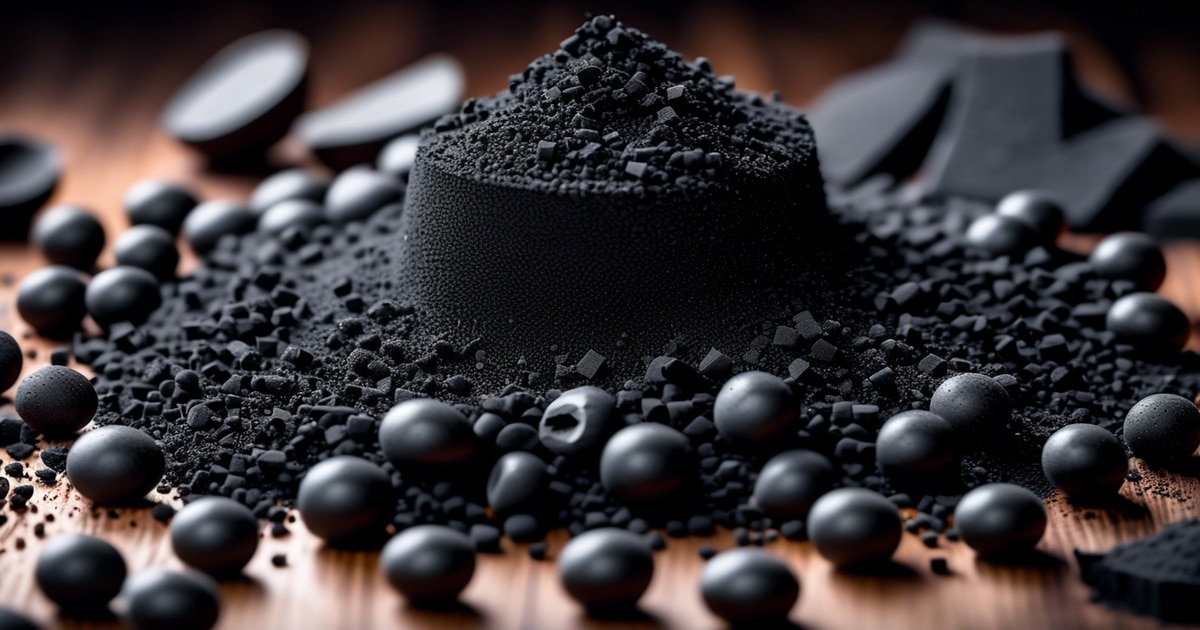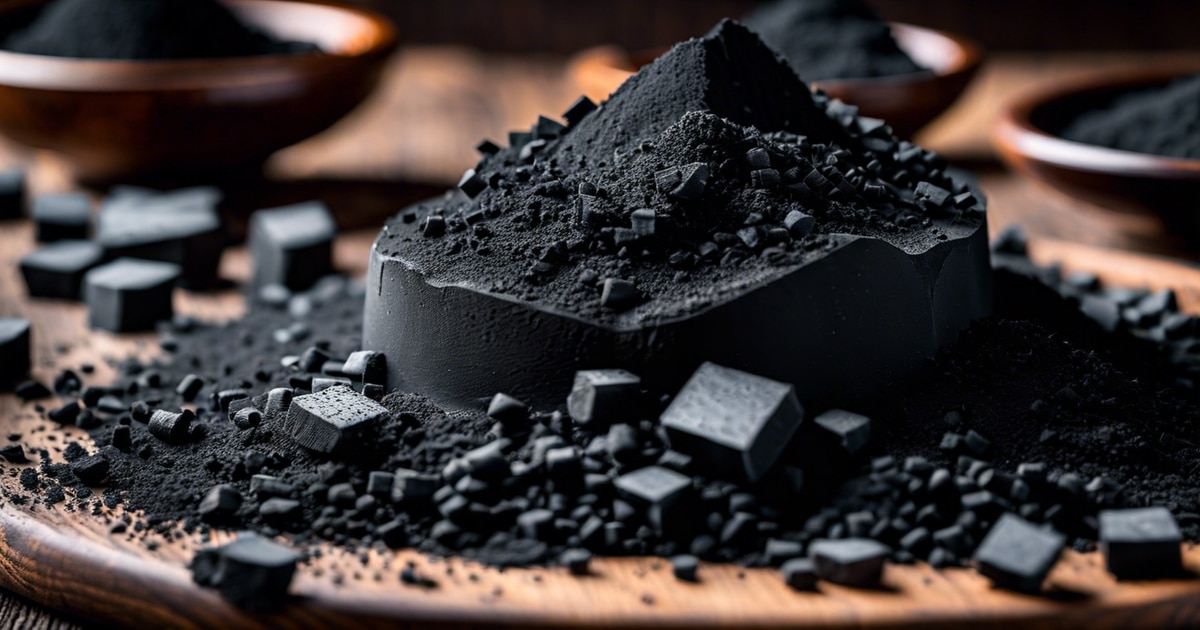Key Takeaways
- Activated charcoal can be an effective treatment for poisoning: Its ability to bind to toxic substances in the gastrointestinal tract can help prevent their absorption into the body.
- Administer activated charcoal based on specific guidelines: Consider the type of poisoning, the time of ingestion, the patient’s condition, and the ingested toxins when deciding on single or multiple doses.
- Special considerations for pediatric poisonings: Adjust the dosage based on the child’s weight and age, and always consult a healthcare provider before administering activated charcoal.
- Be aware of contraindications and potential adverse effects: Some conditions may not benefit from activated charcoal and side effects like vomiting or aspiration can occur.
- Monitor patients closely after activated charcoal administration following overdose: Watch for signs of toxicity and consider elimination strategies if necessary.
- Understand the risks and interactions: Some substances may not bind well to activated charcoal, so knowing the specifics is crucial for effective treatment.
- Let’s learn about the benefits of activated charcoal for poisoning.
Did you know that every year, over 2 million poisoning cases occur in the United States alone? Activated charcoal emerges as a superhero. This black substance has gained popularity for its ability to absorb toxins and chemicals in the stomach before they can harm the body further. In this post, we delve into the world of activated charcoal for poisoning incidents – exploring its uses, effectiveness, and how it can be a game-changer in emergencies.
History and Background of Using Activated Charcoal
Ancient Use
Activated charcoal has a rich history dating back centuries, with ancient civilizations like the Egyptians and Greeks harnessing its detoxifying properties. They used it as a natural remedy for various ailments, recognizing its ability to absorb toxins effectively.
In traditional medicine, charcoal was valued for its capacity to neutralize poisons by trapping harmful substances in the digestive system before they could enter the bloodstream. This historical use laid the foundation for modern applications of activated charcoal in treating poisoning cases.
Modern Medicine
Today, activated charcoal plays a vital role in emergency medical settings for toxin ingestion, where quick intervention is crucial. When ingested soon after poisoning occurs, activated charcoal can bind to toxic substances in the stomach, preventing them from being absorbed into the body. This process helps reduce the impact of poisoning caused by toxins and can be life-saving in many situations.
- Pros:
- Rapid toxin absorption.
- Easy administration.
- Cons:
- Potential side effects like vomiting or constipation.
Mechanism of Action in Poisoning Cases
Adsorption of Toxins
Activated charcoal is effective for poisoning cases as it adsorbs ingested toxins in the gastrointestinal tract. The porous nature of activated charcoal enables it to bind with various substances like drugs, chemicals, poisons, and toxins.
The process involves poison toxins binding to activated charcoal molecules, preventing their absorption into the bloodstream. This mechanism is crucial in preventing further harm caused by poisonings or overdoses from toxins. Once bound, these toxins (poison) are safely eliminated from the body through feces.
Wide Range of Substances
Activated charcoal’s ability to bind with a broad spectrum of toxic substances makes it a valuable tool in poison control situations. It can effectively neutralize poisons such as pesticides and other harmful chemicals ingested accidentally or intentionally.
- Activated charcoal prevents the absorption of toxins.
- Its porous structure binds with drugs and chemicals.
- Effective in eliminating various poisons from the body post-ingestion.
Indications and Administration of Activated Charcoal

Oral Administration
Activated charcoal is used for acute poisonings within one hour of ingestion. The patient can take it orally as a suspension or through a nasogastric tube.
- Pros:
- Quick administration
- Easy to swallow or administer via tube
- Cons:
- Limited effectiveness after the first hour
Dosage Guidelines
The amount of activated charcoal depends on the individual’s weight, the ingested toxic substance, and the poison. It is crucial to calculate the correct dosage based on these factors.
- Calculate patient’s weight.
- Determine type and amount of toxin consumed.
- Administer activated charcoal promptly for optimal effect.
- Key Information:
- Weight-based dosing
- Time-sensitive administration
Single-dose vs Multiple-dose Activated Charcoal

Single-Dose Usage
Single-dose activated charcoal is the standard treatment for most poisoning cases. It effectively binds toxins in the gastrointestinal tract before they are absorbed into the bloodstream. This method helps prevent further harm by reducing toxin absorption.
Activated charcoal acts like a sponge, trapping toxic substances and preventing them from entering the bloodstream. It is commonly used in emergency rooms and can be administered orally or through a nasogastric tube. The single dose is usually given within one hour of ingesting the toxin to maximize its effectiveness.
Multiple-Dose Consideration
In cases where toxins have prolonged absorption or high toxicity levels, healthcare providers may consider using multiple doses of activated charcoal. This approach involves administering several doses under medical supervision to enhance toxin removal from the body gradually.
Administering multiple doses can be crucial for substances like aspirin with high blood concentrations due to its slow elimination rate. Medical professionals closely monitor patients receiving multiple doses to prevent complications such as aspiration pneumonia or bowel obstruction.
Pediatric Poisonings and Activated Charcoal Use
Safe Use in Children
Activated charcoal is generally safe for most poisonings in children. It effectively binds to toxins, preventing their absorption into the body. This can significantly reduce the harmful effects of ingested substances on a child’s system. For example, if a child accidentally swallows household cleaning products or medications, administering activated charcoal can help minimize the impact by absorbing these substances before they are fully absorbed.
Dosage Calculation and Monitoring
Healthcare providers calculate the dosage based on the child’s weight. This tailored approach ensures that each child receives appropriate activated charcoal for effective toxin binding without causing harm. Furthermore, careful monitoring during and after administration is crucial in children to prevent potential complications like aspiration – inhaling foreign substances into the lungs – which can occur if proper precautions are not taken.
Contraindications and Adverse Effects
When to Avoid Activated Charcoal
Activated charcoal should not be administered if the patient is unconscious, has a compromised airway, or ingested caustic substances. In these cases, using activated charcoal can pose more harm than good and may lead to further complications.
Assessing the patient thoroughly before considering activated charcoal as a treatment option is crucial. For instance, in scenarios where the ingestion involves corrosive agents like bleach or ammonia, administering activated charcoal can exacerbate the damage already caused by these substances.
Potential Side Effects
While adverse effects of activated charcoal are rare, they can include nausea, vomiting, and constipation. These side effects are generally mild and temporary but must be monitored closely post-administered. The benefits of using activated charcoal outweigh these potential side effects in most poisoning cases.
Before utilizing activated charcoal for poisoning treatment, healthcare providers must carefully weigh the risks against the benefits. Considering factors such as time elapsed since ingestion and the type of substance involved is vital in determining whether administering activated charcoal would benefit or harm in each unique case.
Risks and Interactions with Other Substances
Medication Absorption
Activated charcoal can affect the absorption of certain drugs, vitamins, and minerals in the body. It’s important to administer activated charcoal separately from other medications for at least two hours to prevent interference.
Administering activated charcoal too close to other medications can reduce their effectiveness as it may bind to them in the stomach before they are absorbed into the bloodstream. This separation helps ensure that both substances work effectively without hindering each other’s functions.
Ineffectiveness with Certain Substances
Activated charcoal does not bind effectively with alcohol, acids, or heavy metals. While it is effective against many toxins and drugs, its ability to neutralize these substances is limited due to differences in chemical composition.
- Activated charcoal pros:
- Effective against many toxins and drugs.
- Safe for use when administered correctly.
- Activated charcoal cons:
- Can interfere with medication absorption.
- Limited effectiveness on alcohol, acids, or heavy metals.
Monitoring, Toxicity, and Elimination Strategies
Close Monitoring
During activated charcoal treatment for poisoning, it is crucial to monitor vital signs, symptoms, and laboratory values closely. This monitoring helps track the effectiveness of the treatment and ensures any adverse effects are promptly addressed. For instance, changes in blood pressure or heart rate can indicate how well the body responds to activated charcoal.
Additional Elimination Strategies
In cases of severe poisoning or ingestion of toxic substances where activated charcoal may not be sufficient on its own, additional elimination strategies such as hemodialysis might be necessary. Hemodialysis helps remove toxins from the bloodstream more rapidly than other methods and is often used in critical situations to prevent further harm.
Monitoring with activated charcoal should always be followed by appropriate medical evaluation and management to comprehensively address the underlying cause of poisoning. This involves a coordinated effort by an interprofessional team that includes clinical toxicologists, emergency room physicians, nurses, and other healthcare professionals working together to provide optimal care for patients affected by poisonings.
Final Remarks
You’ve now explored the ins and outs of using activated charcoal for poisoning cases. You’ve comprehensively understood this treatment option, from its historical roots to its mechanisms of action, indications, and potential risks. Remember, whether it’s a single-dose or multiple-dose regimen, knowing when and how to administer activated charcoal can be crucial in managing poisoning incidents effectively.
Consider the nuances discussed here as you delve deeper into this topic or encounter situations where activated charcoal may be considered. Understanding the contraindications, monitoring strategies, and pediatric considerations can significantly affect the outcomes of poisoning cases. Stay informed, stay prepared, and continue your journey toward enhancing your knowledge in toxicology.
Frequently Asked Questions
Can you explain the history and background of using activated charcoal for poisoning?
Activated charcoal has been used since ancient times to treat poisonings due to its ability to adsorb toxins in the gastrointestinal tract. It gained popularity in modern medicine as a safe and effective method for reducing toxin absorption.
How does activated charcoal work in cases of poisoning?
Activated charcoal binds toxins in the gut, preventing their absorption into the bloodstream. Its porous structure attracts chemicals, drugs, and poisons, trapping them before they harm the body.
When should activated charcoal be administered, and what are the proper indications?
Activated charcoal is typically given within one hour of ingesting toxic substances. It is indicated for certain poisonings like drug overdoses or chemical ingestions where rapid decontamination is necessary.
What are the differences between single-dose and multiple-dose activated charcoal administration?
Single-dose activated charcoal involves giving a one-time dose to absorb toxins. Multiple doses are used when continued toxin elimination is needed, such as with sustained-release medications or ongoing exposures.
Are there specific considerations when using activated charcoal for pediatric poisonings?
In pediatric cases, dosing based on weight is crucial to avoid under- or overdosing. Activated charcoal may be less effective in young children due to vomiting risks but remains a valuable decontamination tool when administered correctly.

